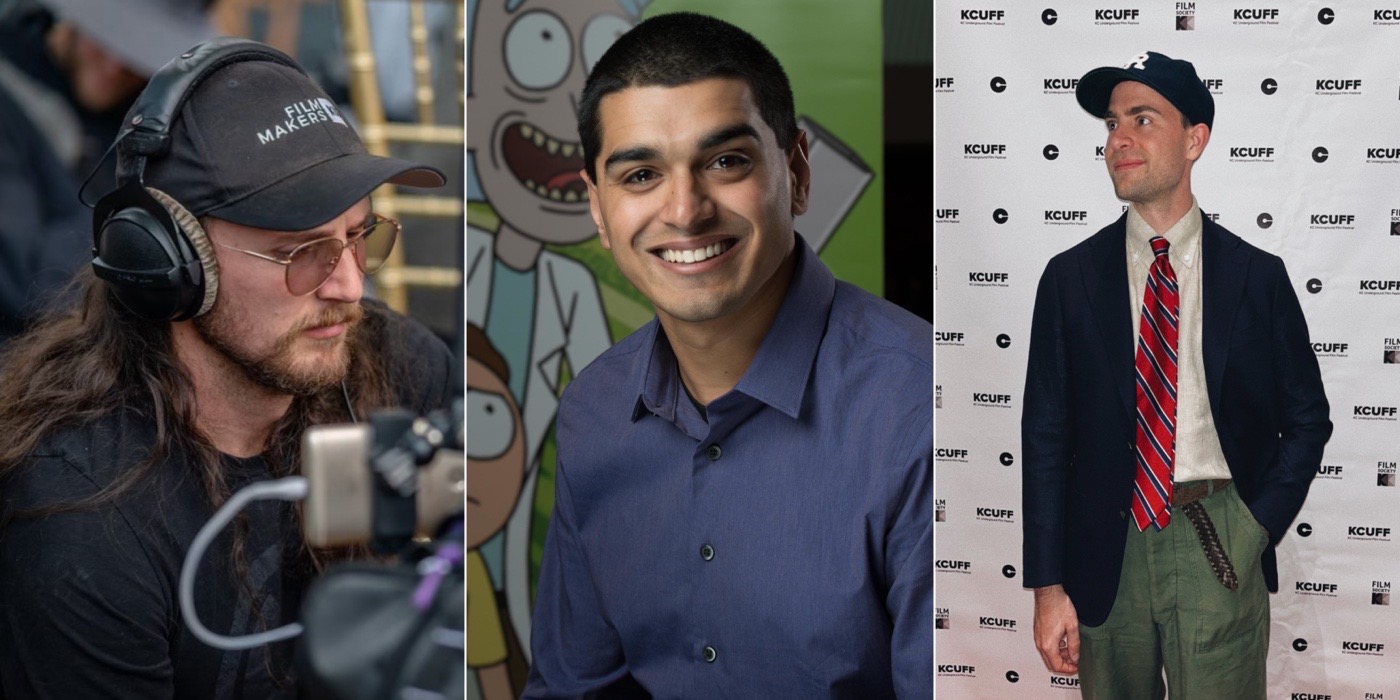By Michael Isaac Palmer
As students in the arts approach careers, it can be easy to become fixated on a specific path. Many film students want to become independent feature directors, many ballet dancers want to become principal dancers of a company, and many theatre students aspire to work on Broadway. Some of them will accomplish those very things!
But for some, including me at times, options that look different than the planned path can feel like failing. Once a goal is in mind, we can become myopic in trying to achieve it. But at the end of the day, the arts are uniquely broad with possibility, and expanding your horizons is often the key to success and contentment.
To explore more on this topic, I spoke with three artists with similar education and ambitions to myself, all of whom are doing something different than they originally planned, on how they found career paths they’re satisfied with and what it took to get there.
“When I first got my start, I worked with a professor of mine as a boom op, because he was still working in the industry. Being friendly and professional on set, actively seeking those connections, got me the next job, and it just went from there."
-Sean Weitzel
Sean Weitzel has always known he was interested in sound, he’s been building out his own gear for years. But when jobs started coming in, he left a bachelor’s degree behind to pursue them. Now, in-between gigs as a sound mixer, he’s developed several pieces of gear in beta-testing on major sets around the country, from a lighter boom pole attachment to a clapboard that syncs with cameras timecode for a fraction of the cost of current models. When I spoke with him, he’d just gotten an oscilloscope to examine the voltage of the timecode output, and when he got more technical than that I stopped being able to follow him. One of the things we talked about was the groups that he tended to work with again and again. Candlelight Media, a family friendly production company based in Orem, had used him as their sound mixer for most of their last dozen productions, and he’d flown around the world with them to do it.
“It was great, like I just stayed in a real castle for two weeks, filming a time-travel rom-com,” he said. Opportunities like that would never be possible if he hadn’t been so flexible as to what he was looking for. “When I first got my start, I worked with a professor of mine as a boom op, because he was still working in the industry. Being friendly and professional on set, actively seeking those connections, got me the next job, and it just went from there.”
Jordan Boge works in creative marketing for CNN. After graduating with a masters in film from the U Department of Film & Media Arts, he cast a wide net for jobs. But it was the internship he’d done right after undergrad that led to his current position. The CNN internship coordinator from his time there had moved to Turner Classic Movies, and was more than happy to have him back under her wing. “It was so important that I’d kept up that connection,” he said. While it wasn’t exactly what he’d gone to school for, it set him up to continue working at Warner Bros. Discovery. For Jordan, never having one “dream job” in mind was key. When I spoke with him, he was frank about needing to keep his horizons open. “While it isn’t exactly what I had in mind while I was in school, I’m really satisfied by what I do, and I get to go home and live a life outside of work.”
Connor Rickman, a University of Utah graduate in both theatre and film, has made a feature length film. It’s awesome. (I may be slightly biased, I worked on it my freshman year.) From the outside, Connor is someone who has done what he wanted to do most. So I was surprised to hear he’s going back to school, to get his MBA from Duke. The more I talked with him, the more I understood how his path is evolving over time. He started as a Production Office Assistant, working his way up to Production Coordinator, but now works for Wrapbook, a film payroll company, as a customer support specialist. His years of experience in the offices of film companies gives him a unique insight into the needs of payroll staff, and he’s getting the MBA to pursue further opportunities at the company. He was quick to say that he had no regrets, that “while the path I was on was not the path I decided to continue, it’s way better than making the safe choice when I was younger.” He elaborated: “It’s so easy for this job to become your identity, because it’s freelance. ‘I’m a gaffer’ or ‘I’m a dolly grip,’ but no, you don’t have to be any one thing.” Flexibility was key for Connor, and it allowed him to work on a lot of different sets, way more than a lot of his colleagues, who always wanted to be just that one thing. “And the connections I made –– I sort of engineered the feature into place,” he explained. Every director will tell students “just go make movies,” but Connor focused more on the people that would get excited to work with him.
Overall, each of these people pay the bills in something related to the film world. They work on projects they’re passionate about, but they also work on projects that help them maintain financial stability. As hard as it can be to accept, you can be happy in the arts in wildly different ways than you’d expect.
ArtsForce Takeaways:
-
Don’t let yourself be defined by a skill you have.
-
Keep your connections, you never know when they’ll come back to help you.
-
Pursue your passions, but expand your horizons while doing so.
-
Always be open to the next opportunity.

